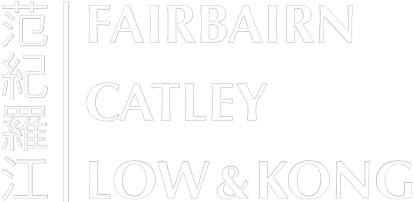Introduction
Hong Kong, as one of the world’s leading international financial centers, plays a crucial role in international trade and finance. However, this prominence also attracts illicit activities, making robust anti-money laundering (“AML”) and counter-terrorist financing (“CTF”) measures essential. To combat these risks, Hong Kong has developed a comprehensive legal framework, aligning itself with the international standards of AML/CTF set by the Financial Action Task Force (“FATF’).
Legal Framework
The primary legislation governing AML/CTF in Hong Kong includes:
- Anti-Money Laundering and Counter-Terrorist Financing Ordinance (“AMLO”);
- Drug Trafficking (Recovery of Proceeds) Ordinance (“DTROP”);
- Organized and Serious Crimes Ordinance (“OSCO”);
- United Nations (Anti-Terrorism Measures) Ordinance (“UNATMO”);
- United Nations Sanctions Ordinance (“UNSO”); and
- Weapons of Mass Destruction (Control of Provision of Services) Ordinance (“WMD(CPS)O”).
AMLO
The AMLO imposes on financial institutions and designated non-financial businesses and professions (“DNFBPs”), requirements regarding customer due diligence (“CDD”) and record-keeping. According to the AMLO, financial institutions and DNFBPs shall establish AML programs and perform CDD measures to identify and verify the identity of their customers. This includes identifying the customers and verifying their identities using reliable documents; understanding the purpose and intended nature of the business relationship or transaction; and conducting ongoing monitoring of the business relationship to identify suspicious transactions.
Enhanced CDD measures are required for high-risk customers, including politically exposed persons and business relationship or transaction from high-risk jurisdictions. Enhanced CDD measures include but are not limited to examining the background and purpose of the transaction, as far as reasonably possible; increasing the degree and nature of client relationship monitoring in order to better detect any suspicious activity; and controls to manage higher risk clients or transactions and measures to establish source of funds or source of wealth where appropriate. This may entail seeking additional independent and reliable sources to verify information provided or made available (it can include publicly available information); taking additional measures to understand better the background, ownership and financial situation of the customer, and other parties to the transaction; taking further steps to be satisfied that the transaction is consistent with the purpose and intended nature of the business relationship; and increasing the monitoring of the business relationship, including greater scrutiny of transactions.
DTROP, OSCO & UNATMO
The DTROP, the OSCO and the UNATMO impose statutory obligations for reporting suspicious transactions where a person knows or suspects that any property represents proceeds of (or was, or is intended to be, used in connection with) drug trafficking, an indictable offence, or that any property is terrorist property. Before deciding that a potentially suspect activity is not suspicious, a person should consider whether the information that he has, taken in its entirety, might provide “reasonable grounds for knowledge or suspicion”, i.e. in the eyes of a third party. If a report is made to the money laundering reporting officer or the Joint Financial Intelligence Unit, under no circumstances must the client be informed and it is an offence under DTROP, the OSCO and the UNATMO to disclose to other persons any matter which is likely to prejudice any investigation.
UNSO
The UNSO empowers the Chief Executive to make regulations to implement sanctions imposed by the United Nations Security Council, including targeted financial sanctions against certain individuals and entities. Designated persons and entities are specified by notice published in the Gazette or on the website of the Commerce and Economic Development Bureau. Except under the authority of a licence granted by the Chief Executive, it is an offence to make available any funds, or other financial assets, or economic resources, to, or for the benefit of designated persons or entities; persons or entities acting on behalf or, at the direction of designated persons or entities; or entities owned or controlled by the aforementioned; or to deal with any funds, or other financial assets or economic resources belonging to, or owned or controlled by, such persons and entities.
WMD(CPS)O
The WMD(CPS)O controls the provision of services that are suspected to be connected to proliferation of weapons of mass destruction in or outside Hong Kong.
Challenges and Developments
Despite a robust AML/CTF framework, Hong Kong faces ongoing challenges, including:
- Evolving Methods: Money laundering techniques continue to evolve, with criminals leveraging technology and digital currencies. Hong Kong regulators are increasingly focusing on the use of artificial intelligence and machine learning to detect suspicious activities. As cryptocurrencies and virtual assets can be used to obscure the origins of funds, Hong Kong has introduced regulations for virtual asset service providers, requiring them to comply with AML/CTF obligations.
- International Cooperation: As financial activities become increasingly cross border, international cooperation is vital. Hong Kong actively collaborates with other jurisdictions to strengthen its AML/CTF measures in this regard to combat cross border illegal transactions.
- Regulatory Updates: The government continuously reviews and updates AML/CTF regulations to address emerging risks and align with global standards, such as those set by the FATF.
Conclusion
Hong Kong’s continuous commitment to combating money laundering, terrorist financing and proliferation financing through a strong legal framework, effective regulatory oversight, and collaboration with international partners is vital for maintaining its status as a leading international financial center. Continuous vigilance and adaptation to new challenges are crucial in ensuring the integrity of Hong Kong’s financial system.
If you have any enquiries in relation to this article or would like to seek our advice in setting up anti-money laundering protocols for your company, please contact our team and we will be happy to assist you.

